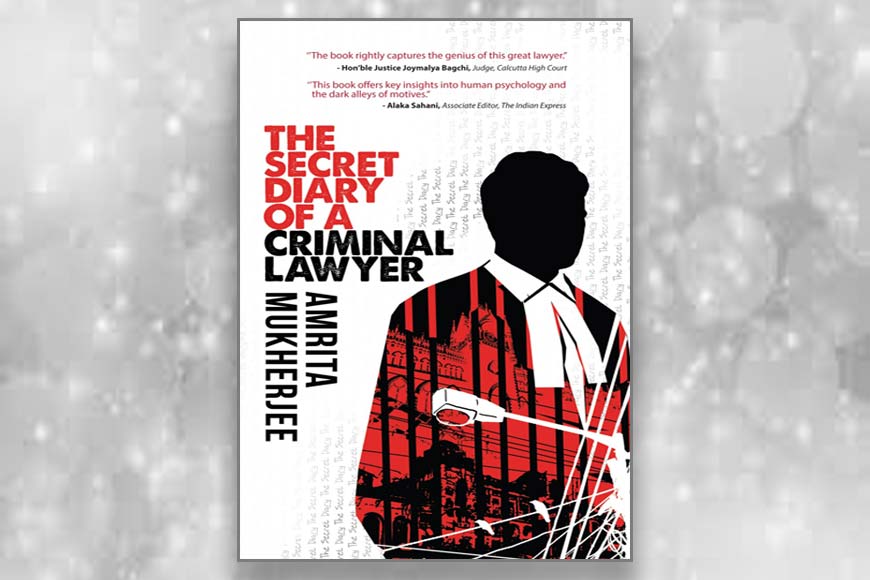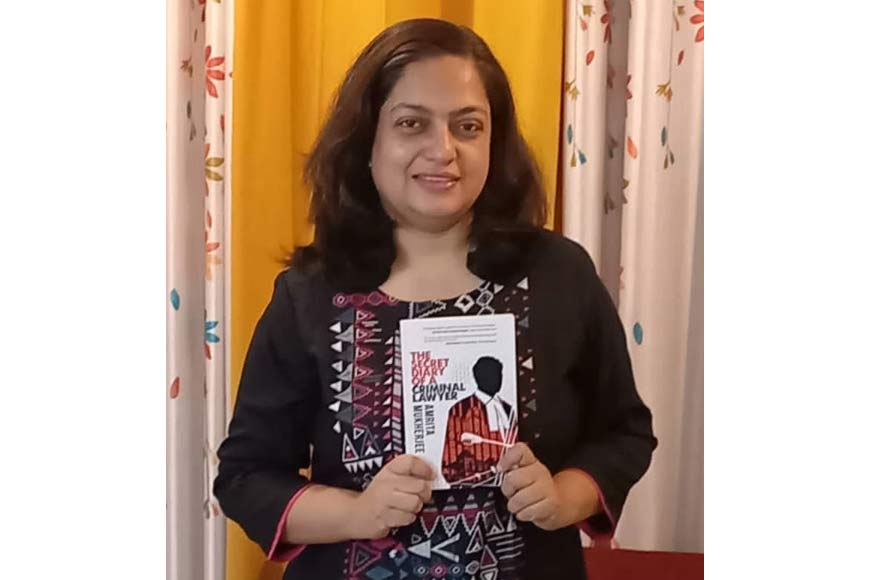Amrita Mukherjee’s book reveals the secret diary of Calcutta’s iconic lawyer

The year was 1994. Anindya Mukherjee was heading back home from a friend’s place when he saw a crowd in front of his home located in a lane in Kalighat. Not sure what was happening, with a thumping heart he parted the crowd and ran up the stairs only to find his house filled with film crew, lights and sound recording equipment. In the midst of this, he found his father advocate Asoke Mukherjee lost in conversation with a gentleman.
“I realized the gentleman sitting with him was Mr Shyam Benegal and I was told he was interviewing my father for a documentary he was doing on criminal proceedings,” said Anindya.
He lost his father when he was five, struggled to make ends meet, and despite that, had the ambition to become a lawyer and then finally took the plunge and started his independent practice, at a time when the city was going through its most turbulent phase.
Late Asoke Kumar Mukherjee was a giant in his profession, who was both respected and dreaded by his opponents, for his cross-questioning ability, in-depth knowledge on various subjects and the ability to think on his feet and turn a case around. In his career spanning five decades, he had handled thousands of cases, at least 600 of which were murder trials and in 85 per cent of the cases he won. In 2018 he was awarded the Lifetime Achievement Award by the Alipore Bar Association.
The lovely @amritamuk with her amazing creation, The Secret Diary of a Criminal Lawyer.
— Readomania (@IamReadomania) December 16, 2022
This book is a collection of fictionalised #truecrime stories from one of the best criminal lawyers of #kolkata
Now available on #Amazon
Check this out! https://t.co/k7DwGEd9hc#Readomania pic.twitter.com/TvrjvjgtrQ
Asoke Mukherjee had the habit of keeping a diary where he would jot down his feelings and realisations about cases that were particularly difficult or emotionally draining. While bedridden with cancer, he dictated 10 true stories from this diary to his niece Amrita Mukherjee, who is a journalist and a published author. These stories have been published in the book The Secret Diary Of A Criminal Lawyer. The real-life stories not only take shocking twists and turns, but these also deal with how circumstances often push normal people into committing crime and how a criminal lawyer has to think beyond the obvious to turn a case around in his favour.
Dipankar Mukherjee, Publisher and Director, Readomania Publishing, said, “It is very interesting to explore the human psyche through the eyes of a lawyer. This unique point of the book is what made it exciting for us. Besides, the writing is clean, the pace is wonderful and keeps the reader engaged.”
What happens when a man kills his brother in a fit of rage? Does the love story of an underworld kingpin end in a happily ever after? How can best friends become worst enemies? Does a tormented mother send her son to jail? The answers to all these questions are there in the book, but the stories are written in such a way that the reader will be kept guessing at every twist and turn.
Also read : India Cried That Night
Asoke Mukherjee’s life too, has no dearth of twists and turns. He was working as a teacher in Chetla Boys High School and was a part-time lecturer in the commerce department of City College, Amherst Street, when he decided to study law. While the mornings would be spent taking classes, in the evenings, there would be a role reversal and he would become the student at Calcutta University’s law school. Once home, he would give tuitions to supplement his income and then he would sit with his own studies. When he went to sleep after midnight, his body had given up but his mind was still on the CrPC and the sections.
“Great decisions come from adverse situations. Mine also came at a time when the Naxalite movement was ravaging the city and people did not know what the future held. I made a career shift; I left teaching and moved into law,” Asoke Mukherjee wrote in the book.
He lost his father when he was five, struggled to make ends meet, and despite that, had the ambition to become a lawyer and then finally took the plunge and started his independent practice, at a time when the city was going through its most turbulent phase. All these life experiences defined who he was and how he dealt with his clients. He could feel a father’s dilemma when one son was accused of killing another son and a mother’s emotional trauma when she was physically abused by her only son.
“Despite being so brilliant, he was a no-frills man. He never had a snazzy chamber or focused on earning money. But you can say his fame preceded him. I have seen people in courts in different places of Bengal crowding to see him just like they would with a film star. Once I entered his chamber and saw a South Indian man wearing the traditional mundu talking to him. When he left, he told me it was P. Chidambaram,” said advocate Binoy Roy, Alipore Criminal Court.

When Amrita Mukherjee decided to work on the book with him, she wasn’t sure if Asoke Mukherjee’s health would permit the endeavor. But he was so enthusiastic about this book that he would read his diary, dictate her the stories and even refuse the morphine shots so that he wouldn’t get too drowsy.
Late Asoke Kumar Mukherjee was a giant in his profession, who was both respected and dreaded by his opponents, for his cross-questioning ability, in-depth knowledge on various subjects and the ability to think on his feet and turn a case around. In his career spanning five decades, he had handled thousands of cases, at least 600 of which were murder trials and in 85 per cent of the cases he won.dependent practice, at a time when the city was going through its most turbulent phase.
“He was bedridden then, but his mind was so sharp that he would tell me the stories from his life in his impeccable English and answer all my questions with precision. Only two months after my last visit to him for the book, he took off on his eternal journey,” said Amrita Mukherjee.
“Asoke Mukherjee was a voracious reader and was always reading. The saddest part is he couldn’t hold this book in his hands. But what makes me happy is people both in our profession and outside it, will get to know about this icon in our field through this book,” said advocate Krishnendu Bhattacharya, Calcutta High Court.











